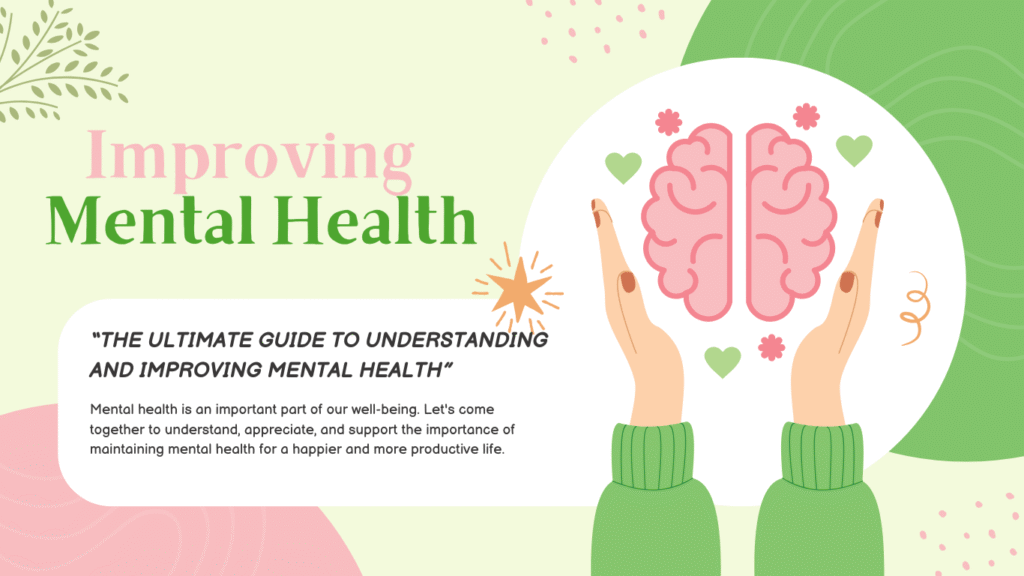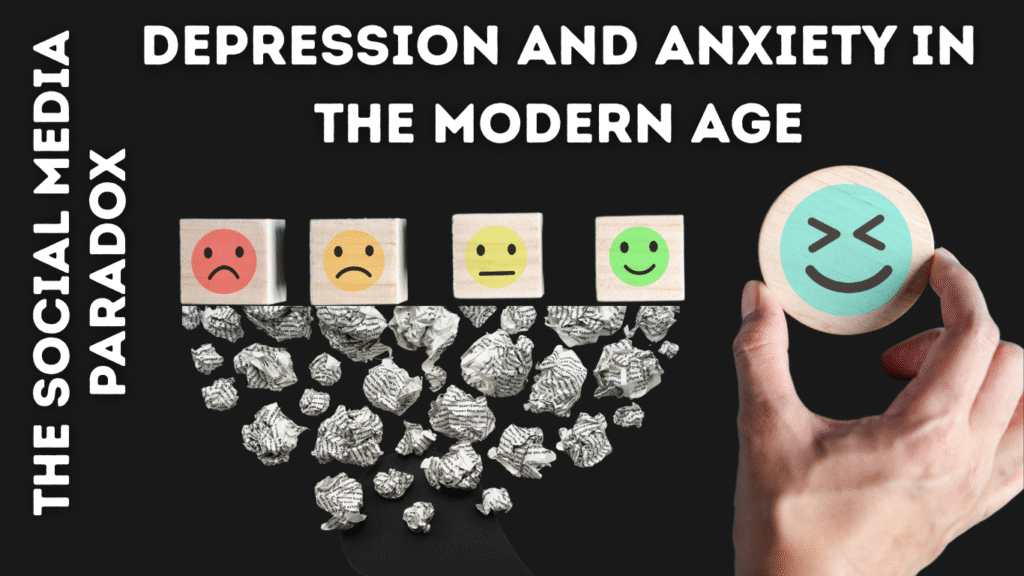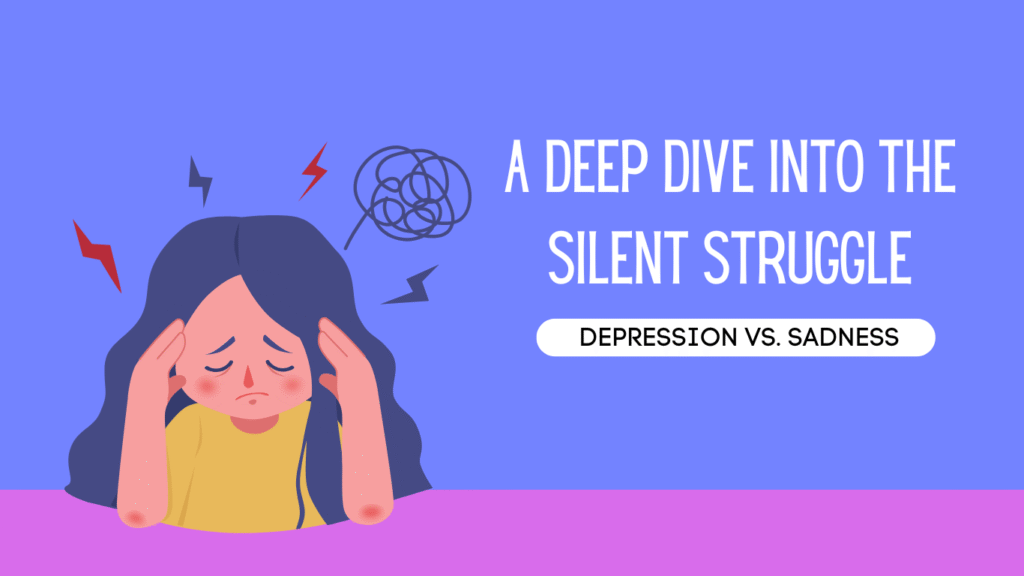Introduction to Mental Health
Mental health is an integral part of our overall well-being, affecting how we think, feel, and behave in our daily lives. Unlike physical health, mental health often goes unnoticed until significant issues arise, but its impact is profound. It determines how we handle stress, relate to others, and make life decisions. In recent years, mental health awareness has gained momentum, yet many still struggle to understand its depth and importance. Mental health is not just the absence of mental illness but a state of well-being in which an individual realizes their abilities, can cope with normal life stresses, and can contribute meaningfully to their community.
Mental health issues can range from temporary emotional struggles to chronic mental illnesses. The key to addressing mental health effectively is recognizing its significance and removing the stigma associated with it. Prioritizing mental health is as crucial as maintaining physical health, as both are deeply interconnected.
What is Mental Health?
Definition and Scope of Mental Health
Mental health encompasses our emotional, psychological, and social well-being. It affects how we think, feel, and act, influencing our ability to handle stress, relate to others, and make choices. Mental health is dynamic, meaning it can change over time based on life experiences and external factors.
Differentiating Mental Health from Mental Illness
It’s important to distinguish between mental health and mental illness. Good mental health means functioning well emotionally and psychologically. Mental illnesses, on the other hand, are diagnosed conditions that significantly affect mood, thinking, and behavior. Examples include anxiety disorders, depression, and schizophrenia. One can have poor mental health without a diagnosed mental illness, and vice versa.
Common Mental Health Disorders
Anxiety Disorders
Anxiety disorders are characterized by excessive fear or worry that interferes with daily life. Common types include Generalized Anxiety Disorder (GAD), Panic Disorder, and Social Anxiety Disorder. Symptoms may include rapid heartbeat, sweating, and feelings of dread.
Mood Disorders (Depression, Bipolar Disorder)
Mood disorders affect emotional states. Depression is marked by persistent sadness and lack of interest, while Bipolar Disorder involves extreme mood swings between highs (mania) and lows (depression). Both conditions can severely impact life quality and require medical attention.
Personality Disorders
Personality disorders involve enduring patterns of behavior and inner experiences that deviate from cultural expectations. Common types include Borderline Personality Disorder, Narcissistic Personality Disorder, and Antisocial Personality Disorder. These conditions affect relationships and self-perception.
Psychotic Disorders (Schizophrenia)
Psychotic disorders, such as schizophrenia, affect thinking and perception. Symptoms include hallucinations, delusions, and impaired cognitive function. These conditions often require long-term treatment and support.
Eating Disorders
Eating disorders are characterized by unhealthy eating habits that negatively impact physical and mental health. Examples include Anorexia Nervosa, Bulimia Nervosa, and Binge-Eating Disorder. These disorders are often linked to body image issues and emotional distress.
Causes of Mental Health Issues
Biological Factors
Biological factors like genetics, brain chemistry, and hormone imbalances can predispose individuals to mental health issues. For instance, family history of mental illness increases risk.
Environmental Factors
Environmental influences, such as exposure to violence, trauma, or chronic stress, can contribute to mental health problems. Childhood abuse or neglect significantly increases the likelihood of developing mental health conditions later in life.
Psychological Factors
Psychological aspects, including coping skills, self-esteem, and thinking patterns, play a critical role in mental health. People with low self-worth or poor coping mechanisms are more susceptible to mental health struggles.
Social and Economic Factors
Poverty, social isolation, and lack of support systems are significant contributors. Financial instability and unemployment can increase stress and anxiety, leading to mental health deterioration.
Signs and Symptoms of Mental Health Problems
Emotional Symptoms
These include persistent feelings of sadness, hopelessness, irritability, or excessive fear. Emotional symptoms can affect mood stability and emotional resilience.
Behavioral Symptoms
Behavioral signs might include withdrawal from social activities, changes in sleep patterns, or risky behaviors. Substance abuse is also a common sign of underlying mental health issues.
Physical Symptoms
Mental health problems can manifest physically through headaches, digestive issues, or unexplained aches and pains. Chronic stress and anxiety often lead to long-term physical health complications.
Impact of Poor Mental Health
On Physical Health
Mental health issues often manifest in physical health problems. Chronic stress, anxiety, and depression can lead to heart disease, weakened immune systems, and gastrointestinal problems.
On Relationships
Poor mental health can strain personal relationships, leading to misunderstandings and conflicts. Communication becomes challenging, and emotional detachment can occur.
On Career and Daily Life
Mental health problems can hinder productivity and concentration, affecting career growth and everyday responsibilities. Tasks that once seemed simple may become overwhelming.
The Importance of Early Detection and Intervention
Why Early Detection Matters
Identifying mental health issues early allows for more effective treatment. It prevents symptoms from escalating into severe conditions, reducing long-term impacts.
How Early Intervention Improves Outcomes
Early intervention helps individuals develop coping mechanisms and seek appropriate treatment before issues become unmanageable. This proactive approach significantly improves recovery rates.
Steps for Early Detection
Observing changes in behavior, mood, and physical health can help detect mental health problems early. Regular check-ups and open discussions about mental health are also crucial.
Strategies for Improving Mental Health
Building Healthy Relationships
Strong, supportive relationships provide emotional support and reduce feelings of isolation. Being connected with family and friends enhances mental resilience.
Developing Coping Mechanisms
Learning healthy ways to manage stress and emotional challenges is vital. Techniques include journaling, deep breathing, and structured problem-solving.
Engaging in Physical Activities
Regular exercise releases endorphins, which naturally elevate mood and reduce anxiety. Activities like jogging, swimming, and yoga are particularly beneficial.
Practicing Mindfulness and Meditation
Mindfulness techniques help individuals stay grounded in the present, reducing anxiety and depressive thoughts. Meditation helps clear the mind and promotes mental clarity.
Maintaining a Balanced Diet
A nutritious diet can influence mood and energy levels. Foods rich in Omega-3, vitamins, and minerals support brain health and emotional stability.
Professional Help for Mental Health
Types of Mental Health Professionals
Psychiatrists, psychologists, counselors, and social workers all play roles in mental health care, offering therapy, diagnosis, and support.
When to Seek Help
Seeking help is essential when symptoms persist for weeks or begin to interfere with daily life. Early intervention can prevent conditions from worsening.
Understanding Therapy Options (CBT, DBT, Psychotherapy)
Therapies like Cognitive Behavioral Therapy (CBT), Dialectical Behavior Therapy (DBT), and Psychotherapy help individuals manage symptoms and change negative thinking patterns.
Role of Medication in Treatment
Medications like antidepressants and mood stabilizers can be effective when combined with therapy. They help balance brain chemicals and alleviate symptoms.
The Role of Support Systems in Mental Health
Importance of Family and Friends
Support from loved ones can provide comfort and understanding during tough times, easing the recovery process.
Community Support Programs
Local mental health organizations offer group therapy and educational resources to foster community healing.
Online Support Groups and Resources
Online forums and virtual therapy options make mental health support accessible to more people.



